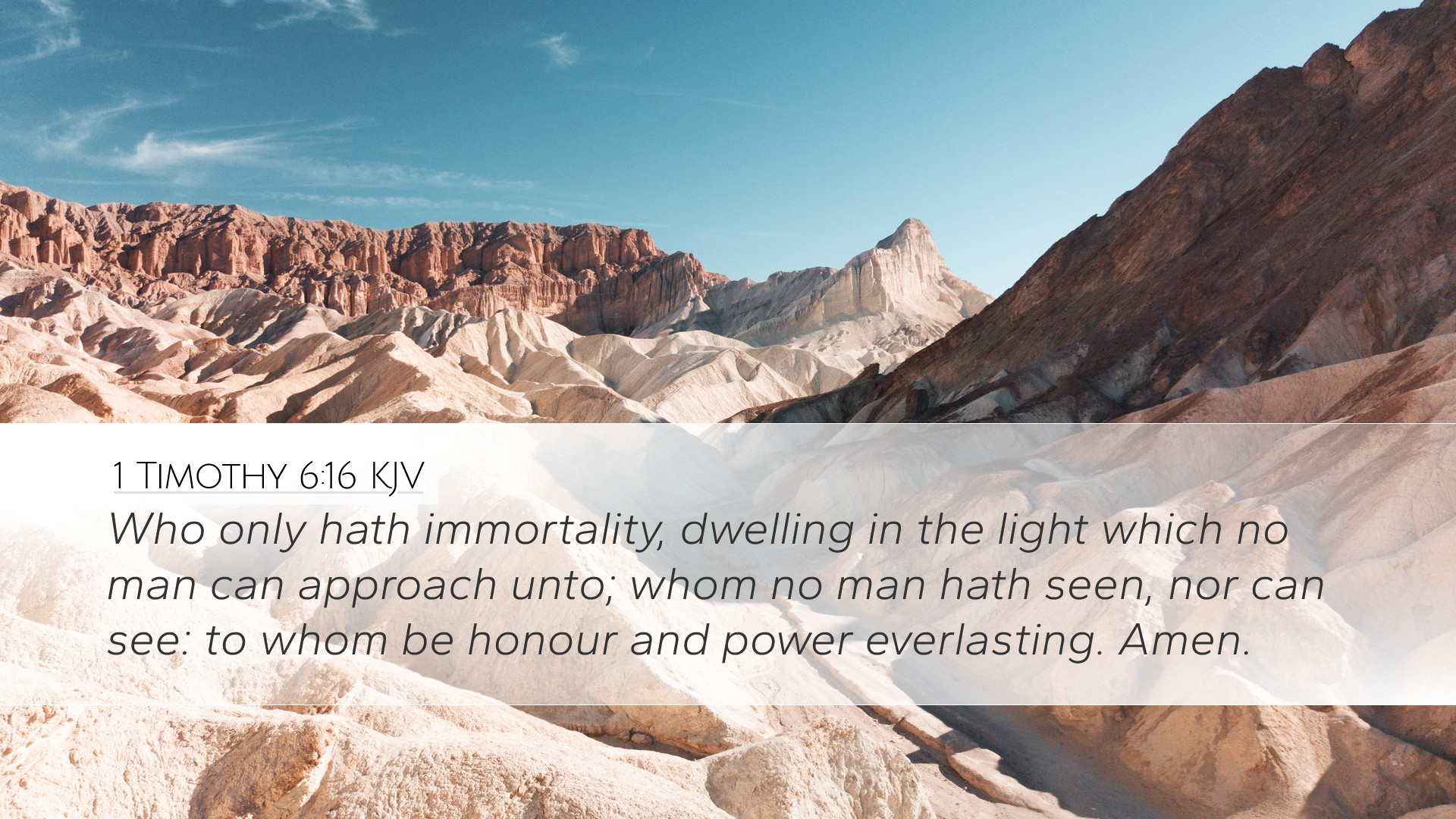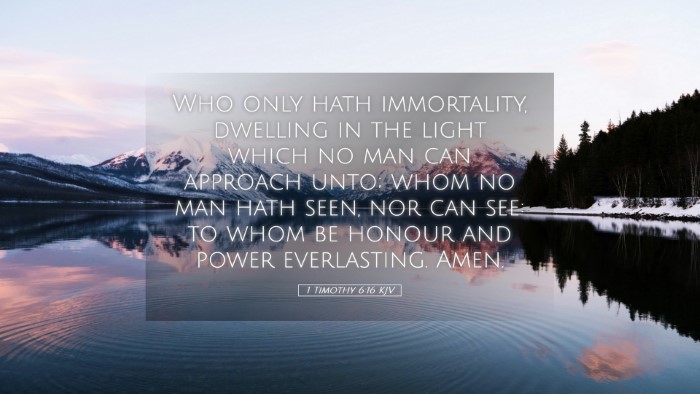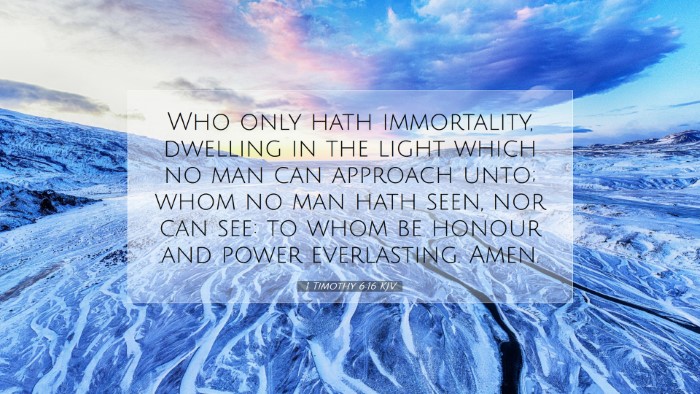Commentary on 1 Timothy 6:16
1 Timothy 6:16 states:
"Who only hath immortality, dwelling in the light which no man can approach unto; whom no man hath seen, nor can see: to whom be honour and power everlasting. Amen."
Introduction
This remarkable verse encapsulates profound theological truths about the nature of God as the eternal, immortal Being who dwells in unapproachable light. The insights from public domain commentaries reveal layers of meaning that are significant for pastors, students, theologians, and Bible scholars.
The Nature of God
Immortality of God
Matthew Henry emphasizes that God's immortality is inherent to His essence. Unlike creation, which is contingent and temporary, God exists absolutely and eternally. This aspect of God should bring comfort to believers, knowing that their Lord is not subject to decay or death.
God's Dwelling Place
Albert Barnes elaborates on the phrase "dwelling in the light," indicating that God's holiness and glory are so immense that no human can approach Him without being transformed. This reflects His separation from sin and the purity associated with His presence.
God Revealed and Unseen
Unapproachable Light
Adam Clarke mentions that the “light which no man can approach unto” signifies both God’s majesty and the moral purity that characterizes Him. The light here serves as an image of God’s majesty which is inaccessible to humankind in their sinful state.
Seeing God
Furthermore, the idea that “whom no man hath seen, nor can see” underscores the transcendence of God. Historically, while there have been instances where people have encountered God in Scripture, these experiences do not allow for a complete revelation of His nature, emphasizing that ultimate knowledge of God is beyond human comprehension.
Theological Implications
Honour and Power
The ending phrase, “to whom be honour and power everlasting,” calls for a response of reverence. Both Barnes and Clarke agree that this ascription of honour and power aligns with the liturgical practices of early Christians whose worship centered upon ascribing worth to God. It informs contemporary worship with a focus on the transcendence and majesty of God.
Application for Believers
Henry articulates that understanding God's nature can transform how believers live. Acknowledging God’s immortal yet unapproachable nature urges believers to approach Him with humility and reverence as they navigate their spiritual journeys.
Practical Reflections
This verse serves as a reminder of the divine order: God stands in utter uniqueness above creation. For pastors and theologians, the truth of God’s immortality and the unapproachable nature of His light challenges them to communicate the holiness of God in their teachings, fostering a deeper pursuit of personal holiness within the community.
Conclusion
1 Timothy 6:16, therefore, is rich with theological significance. Through a combined understanding from Henry, Barnes, and Clarke, we see a God who transcends human understanding, inviting all to respond with honour and reverence. This text not only deepens our awareness of who God is but also shapes our worship and life as believers.


